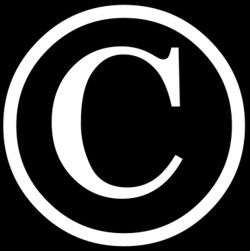Copyright War Continues on Several Fronts

The RIAA's new strategy to fight copyright infringement, by persuading ISPs to warn and eventually dump P2P-happy customers, is coming up against a brick wall. Some tests are being run, and the New York state attorney general is nudging ISPs to cooperate, but so far the strategy has fizzled.
File sharers ignore the letters. That may be part of the problem.
France's three-strikes law has been suspended by the country's constitutional court, which ruled that it violated two clauses in the Declaration of the Rights of Man and Citizen of 1789: "Freedom of expression and communication is all the more valuable that its exercise is a prerequisite for democracy and one of the guarantees of respect for other rights and freedoms and that attacks on the exercise of this freedom must be necessary, appropriate and proportionate to the aim pursued." France is also feeling the heat from the European Union, which takes a roughly similar position.
Irish ISPs have been sued by the Irish Recorded Music Association, the country's equivalent of the RIAA, for not implementing a three-strikes law. Ireland's biggest ISP, Eircom, has already agreed to cooperate. IRMA is now working on smaller ones, filing an injunction to stop them from making copyrighted works available to the public. This seems a novel legal approach, since the ISPs have neither uploaded or downloaded any copyrighted works.
Closed-door talks for an Anti-Counterfeiting Trade Agreement (ACTA) have attracted the attention of the Transatlantic Consumer Dialogue, an umbrella organization embracing the Electronic Freedom Foundation, Public Knowledge, and other groups. They say that copying is not the same as counterfeiting and object to the secretive nature of the talks.
P2P enthusiasts are among the most enthusiastic buyers of hard-copy content, according to a study commissioned by Vuze, developer of a torrenting app formerly named Azureus. The site's users are big buyers of movie tickets and DVDs and also rent more films than the general population.
Finally, we know you want a happy ending: Cablevision's network DVR finally got the green light from the Supreme Court following years of battles over the right to store content on a remote server. The Obama administration asked the court not to hear the case, and the court complied, letting stand a lower court ruling in favor of Cablevision.
























































